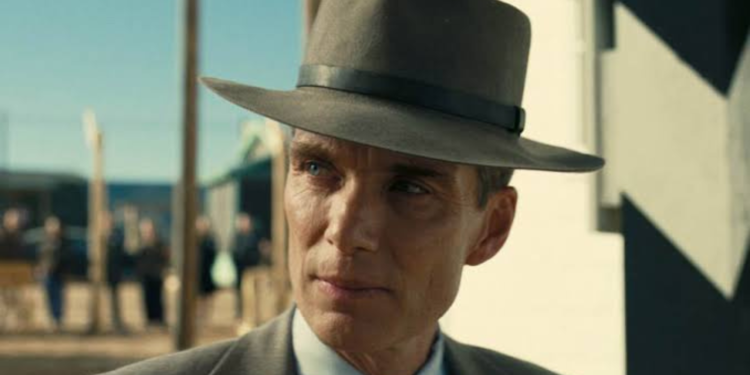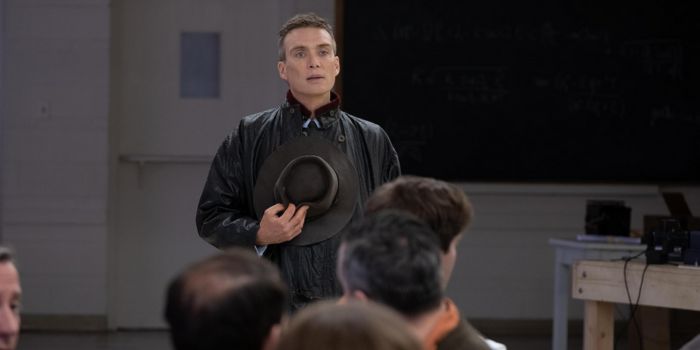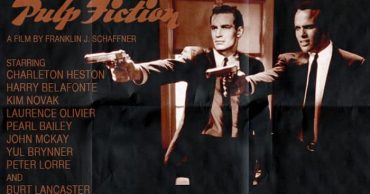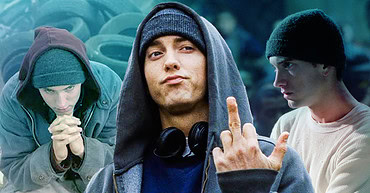Christopher Nolan’s Oppenheimer is set to be one of the biggest films from this year. It tells the story of one of the most influential scientists from the 20th century, Julius Robert Oppenheimer. The film also covers the work that went into building the first atomic bombs, featuring the works of many scientists.
Oppenheimer has a large ensemble cast that features Cillian Murphy, Emily Blunt, Matt Damon, Robert Downey Jr. and Florence Pugh. To tell the story, Nolan utilizes time jumps as the story jumps back and forth from when Oppenheimer was a student, to his work as a lecturer, to his work on the bomb and his trial. In all of the buzz about the film and its subject matters- J.R. Oppenheimer and his bombs, some key parts of the story have not gotten the attention they deserve.
Exploring McCarthyism In Christopher Nolan’s Oppenheimer

One of the major conflicts in Oppenheimer was his 1954 security hearing. This is what sends the once-great scientist tumbling from the peak of success that he had accumulated. In one scene, Oppenheimer sits before the panel naked, as if to present himself, bared to these men who rip him to shreds. A major theme of the hearing was his involvement with Communist parties. They attempted to probe his life dating back to when he was a professor at the University of California. During the same period, he was a member of several Communist parties alongside his wife and brother. All of which were probed by the panel.
This hearing happened to take place during the McCarthyism era. This was a period in American history where there was widespread fear and persecution of individuals suspected of having communist or subversive ties. The film covers the hearing, and we see the ways sentiments of that era play into the treatment of Oppenheimer. All of which coincides with the revoking of his clearance with the American Government. Nolan is able to subtly discuss the second Red Scare and show how dangerous it was in its witch-hunting techniques.
The Ethics and Moral Dilemmas That Drove The Film

Another thing that Nolan addresses in Oppenheimer is the moral dilemma that Oppenheimer started to feel after and during making the bomb. Before its testing in Los Alamos, the scientist had started to receive feedback about the necessity of the bomb. This started to arise after Hitler’s death. But Oppenheimer chose to go ahead with the completion of the bomb.
However, after witnessing the scale of the bomb’s destruction he starts to worry that the technology could lead to more disastrous effects. Oppenheimer started to advocate for the end of the programme. He sought to lay to rest the development of more nuclear weapons. Starting with the rejection of another scientist, Edward Teller’s suggestion for the development of a hydrogen bomb. His objection to this coincides with rising worry that the Soviet Union was also building a bomb. This causes his objections to seem suspicious.
Oppenheimer’s change of heart regarding nuclear weapons is one of the things that led to his conflict with Lewis Strauss. The man responsible for the 1954 hearing, who ensured that people who had problems with Oppenheimer were present to speak against his character. Strauss’ behaviour is also spurred on by something he suspects Oppenheimer of saying about him to Albert Einstein. The brilliance of Nolan is his ability to capture this tension and conflict, not just the one that Oppenheimer is having with other people, but also his internal conflict.
Oppenheimer Tells A Captivating Story Against The Backdrop of History

Nolan is well-known for his brilliant storytelling. He can weave a compelling and complex narrative that leaves viewers stunned for the first few minutes after each movie is done. With stories that border on the line of fantasy or great leaps in scientific discovery, Nolan has established himself as one of the greatest filmmakers in modern cinema.
Nolan’s Oppenheimer intertwines historical events with innovative filmmaking techniques. This film goes beyond the conventional war film genre. It explores the life of a man who had spearheaded the creation of one of the most deadly weapons ever known to man. As well as his attempts to foil the creation of more dangerous bombs. All of which lead to his eventual disgrace.
 Follow Us
Follow Us




